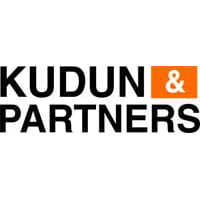
China 2019

Vice general manager of the department of legal security (in charge of legal affairs) | CITIC Bank





Jianxiu Wen
Vice general manager of the department of legal security (in charge of legal affairs) | CITIC Bank
What are the most important transactions and litigations that you have been involved in during the last two years? The restructuring of the Luoshiwan project of Yunnan Zhonghao Group, which involved a large amount of non-performing loans and dispute cases. With great efforts, we successfully resolved the risks of the case and effectively restructured the non-performing loans. Apexmic’s acquisition of Lexmark International. We designed the project financing structure and drafted contracts as lead of the M&A syndicate with banks in Beijing, Guangdong, Hong Kong and New York. How do you suggest in-house lawyers
build strong relationships with business partners? In-house lawyers should fully understand their business partners’ objectives and risk preferences based on our own professionalism. In-house counsel should also give full consideration to the interests and demands of all parties when designing business plans and drafting contracts that involve every party’s rights and interests in order to achieve mutual benefits and a win-win cooperation. What “legal tech” products do you currently utilise, and do you foresee implementing more of these in the near future?
We currently utilise the legal risk management information system independently developed by the team in CITIC Bank. The system integrates the entire process of drafting, reviewing, as well as using and affixing seals of contracts. We can share advanced legal accomplishments made by different branches in the system, and can also analyse the statistics and monitor legal services of CITIC Bank through the system. In the future, we will further enhance the use of legal risk management information technology and products, and comprehensively improve the level of legal risk management. Have any new laws, regulations or judicial decisions greatly impacted your company’s business or your legal practice? “The Meeting Minutes of National Courts’ Civil and Commercial Judicial Work” recently issued by the Supreme Court of China stipulated key issues related to financial institutions, such as the financial creditor’s rights, guarantees, wealth management and enterprise bankruptcy, which will have a significant impact on the banking business. The judicial interpretation of the bankruptcy
law of China and the judicial interpretation
of execution objection recently issued by
the Supreme Court of China both have a
great influence on litigation cases and cases
involving the disposal of non-performing
assets in bankruptcy.
What do you feel are the most effective techniques for getting the most out of external counsel, in terms of how to instruct them? To improve the effectiveness of the in-house counsel’s work, we instruct external counsel to fully understand our business, product characteristics and risk preferences as well as try to reduce ineffective communication. In addition, we instruct external counsel to build a lawyer service team that consists of lawyers with different levels of professionalism and divisions of work, in order to meet legal service requirements from different business functions and deal with various difficulties for the Bank. Furthermore, we instruct external counsel to integrate various legal service requirements, analyse the key points of legal risk prevention for the Bank and provide comprehensive legal risk management solutions. How do you feel in-house legal leaders can successfully introduce and implement a culture within a legal department? In-house legal leaders should lead their team to broaden their horizon, strengthen their professionalism and enhance their career sensitivity through participating in litigation cases, business negotiations and legal researches. In-house legal leaders should also strengthen the identification of team members’ professionalism on the basis of complete understanding of the business. What would you say are the unique qualities required to be successful as an in-house lawyer in your industry? First of all, profound professional skill is necessary. The banking industry I’m engaged in includes a wide range of the legal issues, not only criminal law but also civil and commercial laws which cover contracts, guarantees, the company, partnerships, bankruptcy, trusts and various civil and commercial law practice areas. An outstanding in-house counsel at a bank should first master the above laws and keep up with all kinds of changes of policies and regulations as well, understand the latest regulation spirit so as to form a comprehensive legal professional knowledge. Based on this, the in-house counsel should master relevant knowledge of the company’s core business comprehensively so as to form the professional judgment of a banking in-house counsel. Secondly, a rigorous attitude is very important. The accurate determination of risks and responsibilities often exists in the details. As a legal expert, he or she needs to have a more rigorous working attitude and pay more attention and be more sensitive to the details of the business. A holistic view of the overall situation is third but not the least. There is no purely legal issue in the business and you need to judge the balance between benefits and risks for all the legal solutions. As an excellent legal employee, he or she should stand in the interests of the company as a whole, judge the risk probability and the counterparty’s interests as well as the company’s long-term demands comprehensively before making the final decision. FOCUS ON… Law is an art, an art of balance. As a supervisor of legal risks in a bank, it is necessary to find a balance between the interests of the counterparty and those of the Bank in order to achieve a win-win situation with clients, to find a balance between judicial compulsion and the rights of the Bank to ensure the maximisation of the Bank’s interests under legitimate conditions, to find a balance between supporting business development and controlling legal risks to maximise the overall benefits to the Bank. The ability to find and identify the balance is the art of law, an important criteria to measure the professionalism of legal counsel, and the biggest difference between in-house counsel in a bank and external counsel. The cultivation of legal artistry needs to be built on the professional sentiments of legal personnel and guaranteed by excellent legal professionalism. It can only be achieved after repeated exercise in practice. A legal practitioner’s role and responsibility in a company is built on his or her professionalism, and his or her accomplishments are determined by the amount of efforts he or she puts in.